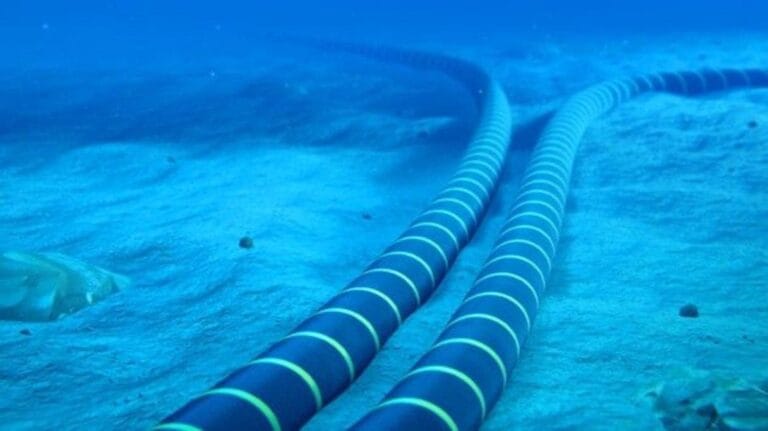The X-Links project, an ambitious energy initiative worth £25 billion, could soon change the game for the UK’s energy supply. It involves transporting up to 3.6 gigawatts of solar and wind electricity from Morocco to the UK every day, via a network of 4,000 kilometers of underwater cables. This capacity could power nine million homes and reduce CO₂ emissions from the UK energy sector by 10%. However, after four years of efforts and recurring administrative obstacles, the project’s investors are considering turning to other markets, including Germany, thus threatening the future of this large-scale project.
Dave Lewis, chairman of X-Links and former CEO of Tesco, is concerned about the slow pace of government decisions that could undermine the ambition of this flagship project. In an interview with the *Telegraph*, he states that, despite the necessary funds already raised, the prolonged wait for a long-term guaranteed purchase contract from the UK government jeopardizes the entire project. The UK government still needs to validate this contract for the investment to be secured.
### Moroccan Energy: A Counter-Cyclical Solution for the UK
The X-Links project draws its potential from the Moroccan desert, where the sunny climate and constant winds allow for stable electricity production for 19 hours a day. This energy model stands out from British supply sources, which are often subject to climatic uncertainties. “The wind stops blowing in the North Sea, and production capacities drop sharply. X-Links offers a counter-cyclical solution, ensuring continuity of supply,” explains Lewis.
With a competitive rate of around £70 per megawatt-hour (MWh), the energy produced by this project proves to be a cheaper alternative than nuclear or British offshore wind farms. This energy source could not only diversify the UK’s energy supplies but also reduce its CO₂ emissions. However, this potential could be lost if administrative decisions are further delayed.
### The Relocation of the Scottish Factory at Stake
The administrative delay is not only impacting the energy link project. It also threatens the construction of a factory in Hunterston, Scotland, which was set to manufacture the underwater cables necessary for the project. Planned to create 1,200 jobs, this factory could be relocated to another country if the UK does not respond quickly. “If the situation does not unblock, we will have to consider other options,” warns Dave Lewis, emphasizing the urgency of making a decision.
Meanwhile, X-Links is exploring alternatives in Germany, where discussions have already begun. Such a relocation would not only mean the loss of a key project for the British industry but also a possible erosion of the country’s energy sovereignty, particularly in a context where energy independence is a particularly sensitive topic after the war in Ukraine.
### An Issue Beyond the Industrial Framework
While the X-Links project is primarily a large-scale industrial initiative, it also represents a strategic issue for the UK. It is one of the most innovative initiatives in the field of energy transition, capable of reducing the carbon footprint of the energy sector while providing a reliable alternative to national infrastructures. Political inaction could compromise the UK’s participation in this global advancement in renewable energy, a field in which Morocco, according to Dave Lewis, is emerging as a “future renewable energy powerhouse.”
The X-Links project, far from exploiting the resources of a developing country, also generates positive spillovers for Morocco, including the creation of 10,000 jobs and colossal investments in the kingdom. At a time when investments in renewable energy are crucial for global energy security, Westminster’s inaction could well mark a turning point in the evolution of the British energy industry.


